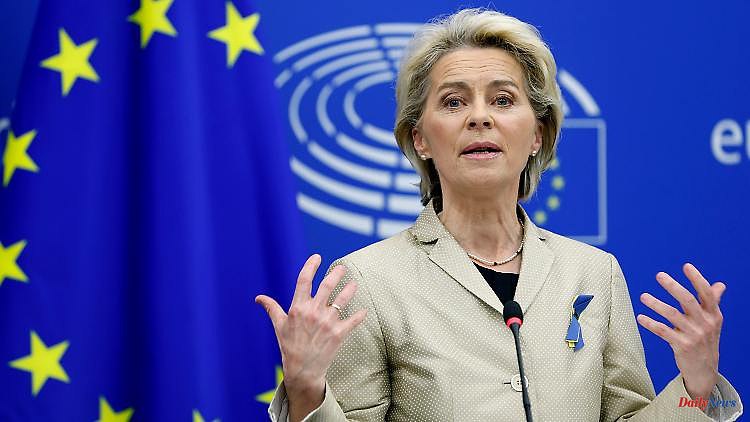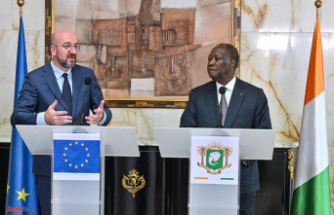The EU wants to accelerate dependence on Russian energy. This should succeed with the massive expansion of renewables. The Commission wants to increase the targets for this. By the end of the decade, this will cost a three-digit billion amount.
According to the Commission, the EU must invest up to 300 billion euros by 2030 in order to become independent of Russian energy. Commission President Ursula von der Leyen presented a plan to move away from fossil fuels in Russia and accelerate the energy transition. "We must reduce our dependence on Russia in the energy sector as quickly as possible," von der Leyen said. This requires significant investments and reforms. "We are mobilizing up to 300 billion euros for this purpose."
The plan will help save energy, accelerate the phase-out of fossil fuels and stimulate investment. "This will turbocharge our European 'Green Deal'," she said. The aim is to stop buying energy from Russia within the decade. Von der Leyen proposed increasing the EU's energy saving target for 2030 from 9 to 13 percent and the target for the share of renewable energies from 40 to 45 percent by 2030.
In order to achieve this, the Commission wants, among other things, to shorten the approval process for renewable energy projects, introduce a solar roof obligation and import more climate-friendly hydrogen. In addition, investments are to be made in infrastructure - in electricity networks, but also in gas and oil pipelines.
Countries like Hungary, which are particularly dependent on Russian oil, are to receive a total of up to two billion euros to get rid of it. The approximately 300 billion euros are to consist largely of loans and grants. Many of the proposed measures still need to be negotiated with EU countries and the European Parliament.
6












